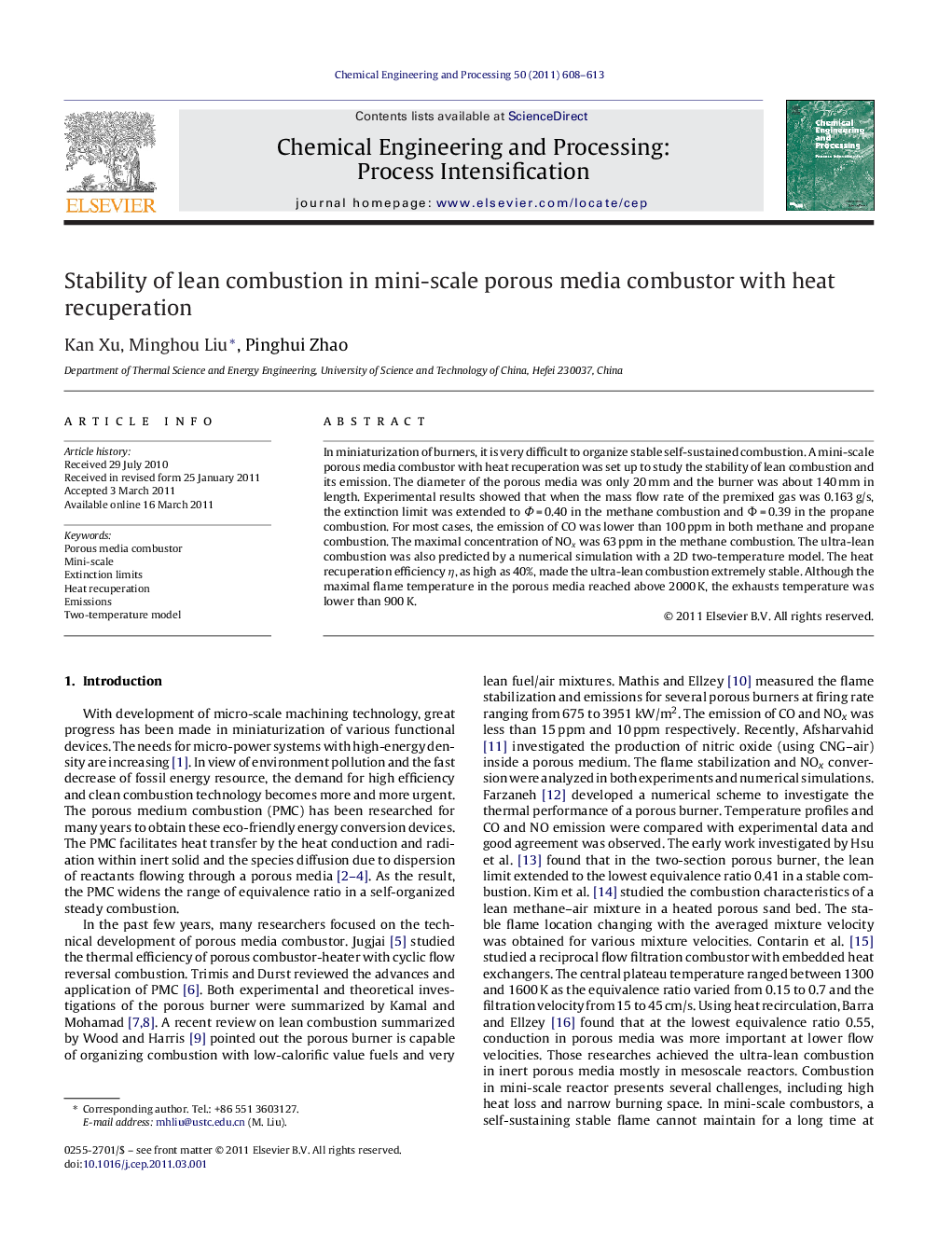| Article ID | Journal | Published Year | Pages | File Type |
|---|---|---|---|---|
| 687177 | Chemical Engineering and Processing: Process Intensification | 2011 | 6 Pages |
In miniaturization of burners, it is very difficult to organize stable self-sustained combustion. A mini-scale porous media combustor with heat recuperation was set up to study the stability of lean combustion and its emission. The diameter of the porous media was only 20 mm and the burner was about 140 mm in length. Experimental results showed that when the mass flow rate of the premixed gas was 0.163 g/s, the extinction limit was extended to Φ = 0.40 in the methane combustion and Φ = 0.39 in the propane combustion. For most cases, the emission of CO was lower than 100 ppm in both methane and propane combustion. The maximal concentration of NOx was 63 ppm in the methane combustion. The ultra-lean combustion was also predicted by a numerical simulation with a 2D two-temperature model. The heat recuperation efficiency η, as high as 40%, made the ultra-lean combustion extremely stable. Although the maximal flame temperature in the porous media reached above 2000 K, the exhausts temperature was lower than 900 K.
► The ultra-lean combustion with equivalence ratio lower than 0.4 has been achieved in our mini-scale porous media combustor. ► With heat recuperation, the combustor exhibited very low emission of CO and NOx. ► Using two-temperature model, a numerical method with consideration of radiation was established and the prediction of the combustor temperatures was well consistent with experimental data. ► It was found that the heat recuperation efficiency could reach up to 40% for the present combustor.
